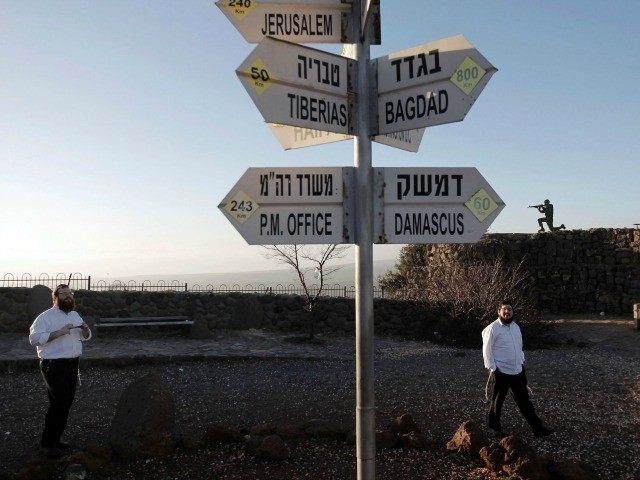TEL AVIV – A leader of the Druze population on the Golan Heights refuted a United Nations statement accusing Israel of imposing economic and social hardships on his community, saying it was “a total joke” and the UN should instead concern itself with real human rights violations such as those occurring in neighboring Syria.
Dulan abu-Saleh, the mayor of Majdal Shams, the largest Druze town on the Golan, told Makor Rishon that the UN Economic and Social Council’s recent assessment of the area was “laughable.” The Council addressed “economic and social repercussions of the occupation on the living conditions of the Palestinian people in the occupied Palestinian territories, including East Jerusalem and the Arab population in the occupied Syrian Golan.”
“I don’t understand what they’re talking about, it’s laughable,” abu-Saleh said. Druze in the Golan “don’t serve in the IDF and so far are only receiv[ing] from the state.”
Druze communities on the Golan Heights are unique in that they don’t serve in the IDF. The Heights, annexed by Israel in 1981 following its capture from Syria during the 1967 Six Day War, is home to some 20,000 Druze.
After the civil war broke out in Syria, many Golan Druze applied for Israeli citizenship, an option that has been open to them since 1981.
Abu-Saleh continued by chastising the UN agency for ignoring Syria: “Why don’t they condemn the horrors in Syria, where dozens of children are killed daily? Golan residents have a good life.”
He also said: “Although we weren’t included in some major cabinet decisions on budgets, when we build and make up plans we never felt discrimination. On the contrary, we always found an attentive ear.”
Although until now the Druze communities maintained some desire to return to Syria, many have thrived under Israeli rule.
Karim Batkhish, a resident of the town of Masa’ada, said: “The war in Syria is irrelevant to us. Some may say they support [Syrian President Bashar] Assad, but it’s a lie to show Syria we’re with them. They’re lying, no one wants to see Syria here.”
In a separate incident, the Times of Israel reported that the international nonprofit Human Rights Watch, often accused of having an anti-Israel bias, was condemned Thursday for a report on child detainees claiming that Israeli “military courts do not provide for specialized juvenile justice.”
The report, titled “Extreme Measures: Abuses against Children Detained as National Security Threats,” further cites a 2013 UN Committee on the Rights of the Child document which claims that, “Israel had ‘fully disregarded’ previous recommendations to comply with international law.”
Both accusations were refuted as “completely false” by watchdog group NGO Monitor.
“A special Juvenile Military Court was established in 2009, and according to the Israeli Ministry of Justice only ‘judges that have received relevant professional training, similar to the training offered to justices of the Youth Courts in Israel, are qualified to serve as juvenile judges.’ ”
NGO Monitor also said that the UN itself had admitted that Israel was complying with its recommendations.
UNICEF’s February 2015 report noted “positive developments in the administration of juvenile military justice.”
The report “clearly reflects the primacy of HRW’s political agenda over methodological rigor and due diligence,” NGO Monitor said.

COMMENTS
Please let us know if you're having issues with commenting.